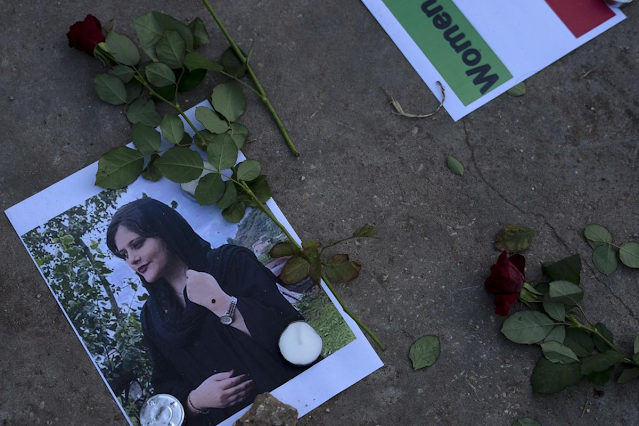Mahsa Amini death: U.S. hits Iran with more sanctions
In reaction to the death of Mahsa Amini, 22, protests that have engulfed dozens of Iranian cities for weeks have grown into the most significant challenge to Iran's leadership in years, and the U.S. on Thursday increased penalties on Iranian government officials.
Due to the shutdown of Iran's internet, the suppression of speech, and the brutality against demonstrators and civilians, the Office of Foreign Assets Control of the U.S. Treasury identified seven high-ranking leaders for financial sanctions. Sanctions were aimed at Iran's interior and communications ministers as well as a number of top law enforcement officials.
"The United States stands with the brave folks and the brave women of Iran who right now are demonstrating to preserve their basic rights," Secretary of State Antony Blinken said in reference to the sanctions.
In addition, Brian Nelson, Treasury's undersecretary for terrorism and financial intelligence, stated that "the freedoms of expression and peaceful assembly are essential to ensuring individual liberty and dignity" when announcing the sanctions.
The Joint Comprehensive Plan of Action, or JCPOA, which was signed in 2015 and provides Tehran with billions in sanctions relief in exchange for agreeing to scale back its nuclear program, is further undermined by American backing for freedom in Iran.
The dilemma of how the administration can legitimately support a protest movement while attempting to reach a nuclear agreement with a regime it accuses of violating human rights has reverberated throughout Congress.
According to Marjan Key pour Greenblatt, director of a network of activists who support human rights in Iran and a nonresident scholar with the Middle East Institute's Iran Program, "President Biden simply cannot offer the prospect of sanctions relief and de facto legitimize a regime that is ruthlessly shooting its own citizens in the street."
Police detained her in September after claiming that she failed to properly cover her hair with the required Islamic hijab. Four days after collapsing at a police station, she passed away.
Young women marched in the streets and publicly chopped off their hair in the most significant threat to Iran's leadership since the 2009 Green Movement rallies, which mobilized millions to the streets. Her death sparked protests in dozens of cities across the 80 million-person nation.
A harsh crackdown has been launched by the government in response. There have been at least 1,900 arrests associated with the protests, according to reports in state-run and state-affiliated media collected by the Associated Press.
And while state television last reported that as of September 24, at least 41 people had died in the protests, an organization called Iran Human Rights in Oslo claims that number to be at least 154.
The U.S. has taken a number of actions against the government and its leaders in response to Amini's killing.



Comments
Post a Comment